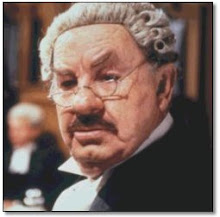Loose Talk Lands Attorney In Jail
Apparently, the judge asked Smith if there had been discussions about arranging for the witness not to appear. Smith replied that there had not been. According to Smith, he only offered a legal opinion to his client that the witness could not be jailed for not appearing. Again, according to Smith, his client or someone closely associated apparently approached the witness and told her not to appear. The witness then told the judge that she had been advised by Smith not to appear.
The client obviously acted in their own best interest even if that meant misrepresenting their attorney's communications and placing the attorney in danger of professional discipline as well as contempt charges.
This illustrates the importance of not allowing your clients or their associates to talk to witnesses or especially to other parties in the litigation. Many clients will say whatever they have to to protect themselves regardless of who else they hurt. Also, attorneys are accustomed to speaking carefully in very nuanced terms and balancing seemingly contradictory information in a way that conforms the standards of the justice system. Civilians are not.
Attorneys are expected to control their clients and associates to prevent this type of loose talk. If Judge Mason's decision stands, the attorney can apparently be held personally responsible even when the client misbehaved and not the attorney. So, the only safe rule is to instruct your client and their associates to never communicate with witnesses or especially other parties to the litigation and to take decisive action to protect yourself if you find out that they have.
http://newsok.com/article/3198687/1201692621
---------------------
I just received a very pointed post indicating displeasure with Judge Gray and announcing the formation of a website critical of her. I have also seen other very public comments (published elsewhere) showing great concern that her honor may have had inappropriate ex-parte contact with the parties in this case. But, because of the highly restrictive and sometimes arbitrary nature of the Oklahoma Rules of Professional Conduct concerning attorney discourse about sitting judges and prosecutors, I regretfully cannot post these comments. However, I think this is a good time to re-post a portion of Justice Marian Opala's excellent dissent in State v. Erickson:
¶3 By accepting a license to practice law, Bar members are required no more than to conduct themselves in a manner that is consistent with lawful behavior and be compatible with orderly administration of judicial process;6 they are neither expected nor required to relinquish fundamental constitutional freedoms. The court’s pronouncement imposes upon a licensed Oklahoma legal practitioner the affirmative duty to stand "four square" for the purity of criminal law enforcement process and to whitewash it even when a doubt may exist. The lawyer is forced affirmatively to assert that all is well with the prosecutorial service; he is free neither to suspect nor to be apprehensive that, in fact, things are not so well. Implicit in the expected affirmations is the disturbing notion that lawyers must serve as enthusiastic cheerleaders for the government. I view § 22 as commanding the government to maintain the very same neutrality that the U.S. Supreme Court has found to be embodied in the First Amendment’s protection of free expression.7 Had respondent been vocally denying the possibility of any corruption in the prosecutor’s office, no disciplinary action would likely have followed and this case would not have been called to our attention.
¶4 By counseling the court that respondent’s comments are indeed shielded, I do not mean to condone his failure affirmatively to state that he would not participate in any improper action. What I emphatically and firmly advance is that professional discipline should not be invoked to chill free speech. Today’s opinion places a higher burden on a practitioner than any licensed legal professional may be required to bear in the constitutional order of our free society.
¶5 Lawyers are not government mouthpieces to be programmed for incantation of an absolution mantra that will sanctify officialdom in power.8 The court’s pronouncement reduces them to the very same status they were forced to endure in the most repressive totalitarian regimes of yesteryear’s Europe. I cannot countenance a decisional [29 P.3d 558] course that turns the Bar into mindless champions for government-dictated orthodoxy.
-------------------------


